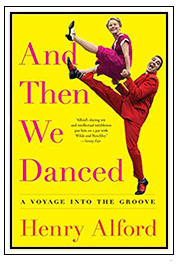Happy Yet?
May 15th, 2009There’s a good (and very, very long) article by Joshua Wolf Shenk in the new Atlantic monthly about the Harvard Study of Development–the psychological testing of 268 men over the course of 72 years that is one of the most comprehensive longitudinal studies ever conducted, and which tried to figure out if there is a formula for a good life. Inasmuch as a sample of Harvard boys can be called representative–indeed, two of the anonymous group of men, it’s been learned over the years, are/were the un-regular Joes by the name of John F. Kennedy and Ben Bradlee–the study offers up some interesting data. Psychiatrist George Vaillant’s main interpretive lens in the study has been “adaptations,” or unconscious responses to pain, conflict or uncertainty that he feels are essential to successful aging. He names four kinds of response–the psychotic (paranoia, hallucination, megalomania); the immature (acting out, passive aggression, hypochondria, fantasy); normal (intellectualization, dissociation, repression); and mature (altruism, humor, anticipation, sublimation).
First of all, I can’t help but breathe a sigh of relief that all of the activities in the third grouping–the very activities that are the basis of my own difficult-to-parse “charm”–are considered normal. I am removed from my isolation. But better yet: Vaillant has said that the other predictor of successful aging besides adaptations is social aptitude. His subjects’ relationships with other people in their lives predicted their late-life adjustment just as well as their adaptations did. Indeed, asked in March 2008 what he had learned from his 42 years of inquiry into these mens’ lives, Vaillant said, “The only thing that really matters in life are your relationships to other people.” Totally warm and fuzzy, no? Let’s go get a beer.


















